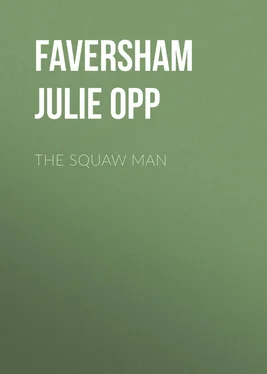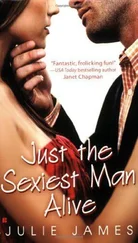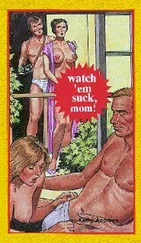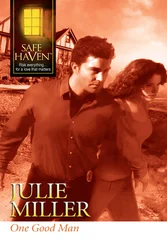Julie Faversham - The Squaw Man
Здесь есть возможность читать онлайн «Julie Faversham - The Squaw Man» — ознакомительный отрывок электронной книги совершенно бесплатно, а после прочтения отрывка купить полную версию. В некоторых случаях можно слушать аудио, скачать через торрент в формате fb2 и присутствует краткое содержание. Жанр: foreign_antique, foreign_prose, на английском языке. Описание произведения, (предисловие) а так же отзывы посетителей доступны на портале библиотеки ЛибКат.
- Название:The Squaw Man
- Автор:
- Жанр:
- Год:неизвестен
- ISBN:нет данных
- Рейтинг книги:3 / 5. Голосов: 1
-
Избранное:Добавить в избранное
- Отзывы:
-
Ваша оценка:
- 60
- 1
- 2
- 3
- 4
- 5
The Squaw Man: краткое содержание, описание и аннотация
Предлагаем к чтению аннотацию, описание, краткое содержание или предисловие (зависит от того, что написал сам автор книги «The Squaw Man»). Если вы не нашли необходимую информацию о книге — напишите в комментариях, мы постараемся отыскать её.
The Squaw Man — читать онлайн ознакомительный отрывок
Ниже представлен текст книги, разбитый по страницам. Система сохранения места последней прочитанной страницы, позволяет с удобством читать онлайн бесплатно книгу «The Squaw Man», без необходимости каждый раз заново искать на чём Вы остановились. Поставьте закладку, и сможете в любой момент перейти на страницу, на которой закончили чтение.
Интервал:
Закладка:
When he entered the mess he found the men in groups, absorbed in their letters. Singleton and Dunlap both called to him.
"There are two for you, Jim."
Letters did not often come his way. When he first left England, several child's letters had come from Diana – these he had answered. He never heard from Henry, and his aunt wrote seldom.
"Dinningfold." He saw the familiar old postmark. It was from Lady Elizabeth, then. Boyishly, he fingered its ample thickness. It was good of her to write such a budget, he thought, as he tore it open. The chatter of voices about him fell unheeding on his ears as the men read their letters.
"God! Breese is dead – dropped down quite suddenly at the club," Singleton remarked as he turned a page of the letter he was reading.
His words were almost drowned by an eager, exulting cry. Half the fellows turned toward Dick Farninsby. He was usually so quiet. To-night his young, fair face was the color of a puppy.
"I've come into the money," he stammered.
Every one knew that Farninsby's uncle had been an old reprobate and that Dick had had a close pinch on his meagre allowance. They also knew that a pretty girl was waiting for him at home. A buzz of congratulations followed. But Tim took no part in them. He was reading his aunt's letter.
"… We are so sorry that you won't be home in time for the wedding. Diana and Henry are to be married. It will be a London wedding. Diana has grown into a beautiful girl and will make a worthy wife for Henry and a charming mistress of Maudsley Towers…"
As he read, the page became a dancing mass of hieroglyphics. The men were beginning to light their cigarettes and pipes as they called bits of news to one another from the English papers. He tried hard to make the strange letters shape themselves and form words. He reread them. "Diana and Henry are to be married." He turned the page. "On the 30th of April," it said. To-day was the 2d of May.
Several of the men started for the polo-fields. Some one called, "What's your news, Wynnegate?" He forgot to answer. He crushed the letter in his hand and left the mess. Mechanically he put the unopened letter from headquarters, with the news of his brilliant reward, in his pocket. Across the polo-fields he could see the heavy atmosphere gathering in great clouds. A dust-storm was nursing its imminent wrath.
It all seemed far away from the Fairies' Corner.
CHAPTER V
Since the day in his mess when Jim read the news of Diana's approaching marriage to Henry, he had been immersed in a strange dreariness of feeling and a curious indifference to the homeward-bound journey. Night after night he stood alone on the forward-deck of the Crocodile bound from Bombay for England, and heard the soldiers singing their camp-songs, their strong, rough voices growing tender as they sang their cockney ballads of home. But they roused no responsive echo in Jim; watching the Southern Cross in the sky, his thoughts often drifted back to the seven years of fighting with their sun-scorched days of fatigue and danger, full of work that drained body and brain. He almost wished that he were returning to them.
One night at Ismailia the pendulum of his emotions swung back from this indifference to the first hours of joy that he had experienced when he received the news that his regiment was ordered back. The ship had anchored there for a few hours to obtain supplies. With Dunlap and Singleton he went ashore to the little hotel with its Continental atmosphere of cheap table-d'hôte dinners and slipshod Italian waiters. It was a shaky wooden building, built around an inside court, with balconies over which clambered in exuberance pale, waxy tea-roses, while the front of the building hung over a cypress-tree garden.
The indifferently good but pretentious meal was served in the tiny court. Dunlap's and Singleton's boisterous mood jarred Jim. He found himself watching the other guests of Monsieur Carlos' hostelry. At adjacent tables parties of tourists were making merry while waiting for the P.&O. steamer to carry them from Cleopatra's land to golden Italy, and from a dance-hall came the fantastic music of the nautch women's instruments. In half an hour the hotel was empty of all the diners save Jim, who lingered until the shabby proprietor, Monsieur Carlos, informed Monsieur le Capitaine that after ten the court was closed, but the verandas were at Monsieur's disposal for his kummel and cigarettes. Jim ascended the creaking staircase to the broad veranda partly hidden from the road by its screen of blooming roses gleaming like stars against the shadowed foliage. Here and there a tight, pink-tipped bud shone like a tiny flame.
The moon had risen and illumined the entire place with an uncanny brilliance, turning the night into an unreal day. Jim sank into a chair. The air was heavy with the perfume of the rose-trees. In the distance he could hear the barbarous clash of the dancing women's cymbals. It was their trade-night with two ships in the harbor. Jim took from his pocket a leather portmonnaie and drew from it the picture of Diana that he had cut from the paper in the hospital.
He had never willingly thought of her since the day he received his aunt's letter. As he sat on the deserted veranda, with the torn page lying on his knee, he was conscious of a sudden, intangible feeling of apprehension. Diana was the tenderest memory of his boyhood. Why did he fear this marriage with Henry? Vainly he studied the picture, trying to gain from the cheap illustration some knowledge of the woman into which Diana had grown. He tried honestly to face the truth of his great anxiety concerning the marriage. He knew that through his convalescence when the longing to go home had overmastered the soldier in him, the thought of renewing his friendship with Diana had been his happiest anticipation. He sought to reassure himself that his disappointment was selfishness – that he feared to find Diana absorbed in new interests, with his place completely crowded out of her life. Then a vision of Henry, sullen and defiant as he had last seen him, flashed before him… Yet might not Henry's character have been redeemed by his love for Diana? Jim knew that the meagre fortune of Sir Charles Marjoribanks could not be a material factor in the marriage. This proved his most reassuring thought. Then his memory reverted to Diana, and he recalled the child Di, who had clung to him on the morning of his departure and begged him to return. He remembered how as a boy he had often played that he was her knight, and fought the unseen foes that were supposed to lurk in the alleyways of the giant trees. Was it a prophetic vision of the future?
He rose from his chair. Sweeping clouds were rolling over the pale moon. The desolation of the place grew more terrible.
Far out at sea he could see the black phantom ship now appearing, now disappearing. It seemed at the mercy of the heavy vapors that at times touched its topmasts. The desire to reach England again grew strong in him. He felt he had a purpose to fulfil.
A half-hour passed. Suddenly the moon swept from under a heavy cloud, shaped like the wing of a monster bird. Across the road he could see the straggling groups of travellers returning from the festivities. Their tired, excited voices reached him, and he was glad to escape from the hotel and make his way to the waiting dinghy. Dunlap and Singleton joined him, and as he leaned back in the skiff, strong and incessant as the incoming tide that beat against the boat grew the strength of his resolve. Diana should obtain happiness if he could serve her to that end.
Three weeks later the Crocodile swung into the harbor at Portsmouth. A symphony in blues and greens greeted Jim's eyes as they anchored within sight of the Victory. An English June sky with riotous blues – from the palest flaky azure to the deepest turquoise – hung in the heavens over a vivid green sea. The very atmosphere seemed floating about in nebulous clouds of pearly tinted indigo. To Jim it was like the beauty of no other land.
Читать дальшеИнтервал:
Закладка:
Похожие книги на «The Squaw Man»
Представляем Вашему вниманию похожие книги на «The Squaw Man» списком для выбора. Мы отобрали схожую по названию и смыслу литературу в надежде предоставить читателям больше вариантов отыскать новые, интересные, ещё непрочитанные произведения.
Обсуждение, отзывы о книге «The Squaw Man» и просто собственные мнения читателей. Оставьте ваши комментарии, напишите, что Вы думаете о произведении, его смысле или главных героях. Укажите что конкретно понравилось, а что нет, и почему Вы так считаете.












